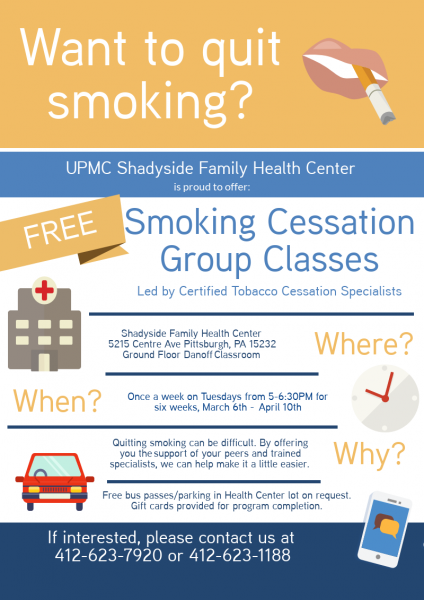Smoking Cessation Efforts – One Woman at a Time
The well-being of mothers and infants shapes the health of their family, their community, and ultimately, our country. The IMPLICIT Network, a national collaborative of family medicine residency training sites, was developed with that conviction in mind. The members of IMPLICIT recognized that prenatal care alone was not enough to improve maternal and infant health, and therefore established an interconception care, or ICC (care between pregnancies), model for maternal child health. The ICC model addresses maternal health during an infant’s well-child visits, because after delivery, many women who had previously received regular prenatal care stop seeing providers for their own health. Moreover, after pregnancy, women often revert to previous health behaviors, such as smoking, which put them and their future pregnancies at risk. For those reasons, the infant’s medical care visits can serve as a unique opportunity to address the health of the mother. Thus, at every well-child visit from birth to 24 months of age, health providers screen mothers for four risk factors: 1) smoking, 2) depression, 3) family planning and contraception, and 4) multivitamin/folic acid use.
As the Maternal and Child Health Care Coordinator at the UPMC Shadyside Family Health Center (which operates within the IMPLICIT Network), my primary role is to provide ICC case management to improve maternal and infant health. When a woman screens positive for one of the four risk factors, I provide health education to motivate behavior change, address barriers, and build meaningful relationships. I frequently encounter mothers who smoke, and in those situations, I utilize the 5 A’s model for smoking counseling: ask, advise, assess, assist, and arrange. After asking the mother’s current smoking status, I advise her to quit smoking. Then, through motivational interviewing techniques, I assess the woman’s willingness to quit. Accordingly, I partner with her to find community resources to aid in her smoking cessation, such as Allegheny County Health Department’s SCRIPT program. In addition, I often refer women to the six-week, free group smoking cessation classes that I developed with a fellow National Health Corps member after becoming a Certified Tobacco Treatment Specialist through the Duquesne University School of Pharmacy. Finally, I arrange regular phone follow-ups to empower behavior change and provide continual support.
Tobacco use remains on the few preventable factors that contributes to poor maternal and infant morbidity and mortality. Smoking not only harms women’s health, but also significantly increases their infants’ risk of serious health problems like preterm birth, low birthweight, stillbirth, and SIDS. As the infant mortality rate in the United States remains stagnant and the maternal mortality rises, it is a privilege to be a part of a wider effort to improve the health of our nation’s mothers and babies. I am hopeful that my work in smoking cessation will empower positive behavior change, one woman at a time.
*Flyer below is for my smoking cessation classes


This post was written by NPHC member Kate Sullivan.
Kate serves at Shadyside Family Health Center as a Care Coordinator.